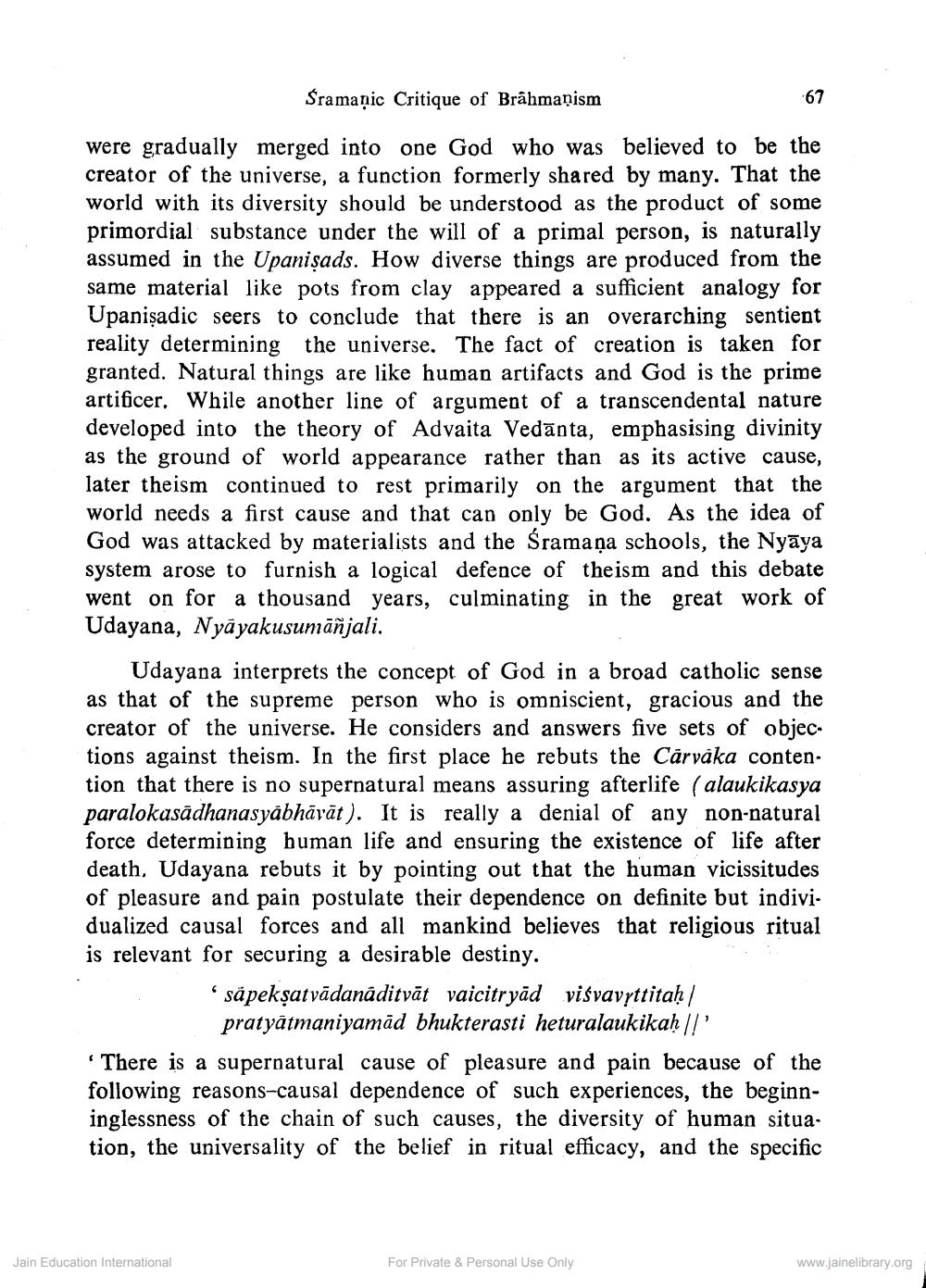________________
Śramanic Critique of Brāhmanism
67
were gradually merged into one God who was believed to be the creator of the universe, a function formerly shared by many. That the world with its diversity should be understood as the product of some primordial substance under the will of a primal person, is naturally assumed in the Upanisads. How diverse things are produced from the same material like pots from clay appeared a sufficient analogy for Upanişadic seers to conclude that there is an overarching sentient reality determining the universe. The fact of creation is taken for granted. Natural things are like human artifacts and God is the prime artificer. While another line of argument of a transcendental nature developed into the theory of Advaita Vedānta, emphasising divinity as the ground of world appearance rather than as its active cause, later theism continued to rest primarily on the argument that the world needs a first cause and that can only be God. As the idea of God was attacked by materialists and the Śramaņa schools, the Nyāya system arose to furnish a logical defence of theism and this debate went on for a thousand years, culminating in the great work of Udayana, Nyāyakusumāñjali.
Udayana interprets the concept of God in a broad catholic sense as that of the supreme person who is omniscient, gracious and the creator of the universe. He considers and answers five sets of objections against theism. In the first place he rebuts the Carvaka conten. tion that there is no supernatural means assuring afterlife (alaukikasya paralokasādhanasyäbhāvāt). It is really a denial of any non-natural force determining human life and ensuring the existence of life after death, Udayana rebuts it by pointing out that the human vicissitudes of pleasure and pain postulate their dependence on definite but indivi. dualized causal forces and all mankind believes that religious ritual is relevant for securing a desirable destiny.
såpekṣatvādanáditvāt vaicitryād visvavyttitaḥ/
pratyātmaniyamād bhukterasti heturalaukikaḥ|!' "There is a supernatural cause of pleasure and pain because of the following reasons-causal dependence of such experiences, the beginninglessness of the chain of such causes, the diversity of human situation, the universality of the belief in ritual efficacy, and the specific
Jain Education International
For Private & Personal Use Only
www.jainelibrary.org




